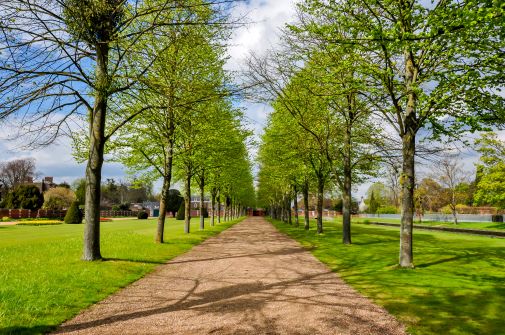Posted on April 18, 2023
Safe parks and green spaces offer important mental health benefits
Researchers were able to show that being outdoors has significant health benefits, but only if participants feel safe and the spaces are well maintained.
The University of York team aimed to highlight the benefits, but also the barriers that prevent people, especially those with serious mental illnesses such as schizophrenia, from accessing natural outdoor green and blue spaces.
Main Barriers
Through storytelling techniques, they were able to develop films that demonstrated the main barriers and benefits to spending time outdoors in natural environments such as parks or seaside areas.
Participants described a range of positive experiences and benefits of being outdoors and in nature, including opportunities for relaxation, time away from everyday stressful experiences, and the chance to participate in meaningful activities.
One of the biggest barriers identified related to the safety of green and blue public spaces and the importance of spaces being properly maintained, clean, well-lit, and having guards available.
External hazards
Professor Lina Gega, Director of the York Institute of Mental Health Research, said: “Safety in an environment is an important consideration for all of us when we are in the midst of emotional or mental difficulties.
“Safety, or lack thereof, is primarily about external hazards, such as sharp objects on the ground, deep water, a steep fall from a building, or antisocial behavior; however, feeling unsafe is also an internalized sense of vulnerability, a sense of being exposed to an environment because of our emotional state.
“Removing external hazards in physical spaces can increase our sense of safety, but we can’t assume it will completely remove feelings of unease in green spaces, as the internalized sense of being vulnerable or exposed may still be there. .”
buddy system
Participants were asked to discuss what might help them overcome some of these safety concerns, and it was recommended that a ‘buddy system’ be used to encourage individuals to spend more time in natural environments. .
A buddy system, often organized by mental health charities, involves pairing a person with mental health issues with a lay volunteer who spends some time each week doing an activity such as going for a walk or accompanying them to a social activity, as well as possibly helping with some daily tasks that they may find difficult.
Recovery
John Manson, one of the participatory filmmakers, said: “Although I live in York – a city full of green spaces – I sometimes want to go away for a few days at least, to disconnect from life city dweller for the sake of my sanity.
“The main challenges I face are the cost and access to transport to different parts of the UK, but also trusting that the places I want to visit are safe spaces for me.
“It would be nice if the experience of green and blue spaces was subsidized as part of the recovery process, because being in the countryside, and especially by rivers and lakes, helps with my PTSD symptoms, although more than drugs.”
Antisocial behaviors
The study found that people with severe mental illness may be particularly concerned or feel particularly vulnerable about entering environments that may attract individuals and groups seeking to engage in antisocial behaviors, for example drug abuse, vandalism and overgrown, littered, vandalized or poorly maintained and poorly lit spaces (in urban areas).
Simona Manni, from the School of Creative Arts and Technologies, which coordinated the film contributions of those who have lived experiences of mental illness, said: ‘It is important not only to make green spaces available and accessible, but to ensure that they are well maintained and appear cared for and supervised so that people who could derive real health benefits from these areas are less afraid to make those trips outside the home and indeed are more likely to be safe.
Mental Health Benefits
Research at York University has previously shown that participation in nature-based outdoor activities results in improved mood, decreased anxiety and positive emotions, and even greater mental health benefits were observed when outdoor activities were carried out in groups.
Researchers say there is a need for substantial and sustained investment in community and local solutions such as nature-based interventions, which are likely to play an important role in addressing a post-pandemic surge in demand. mental health support.
The project was funded by the Close the gap network, led by the University of York, which has supported new research, partnerships and translation work to tackle inequalities in physical health experienced by people with the most severe forms of mental health problems.
Click on here to see the films created by the members of the project.

